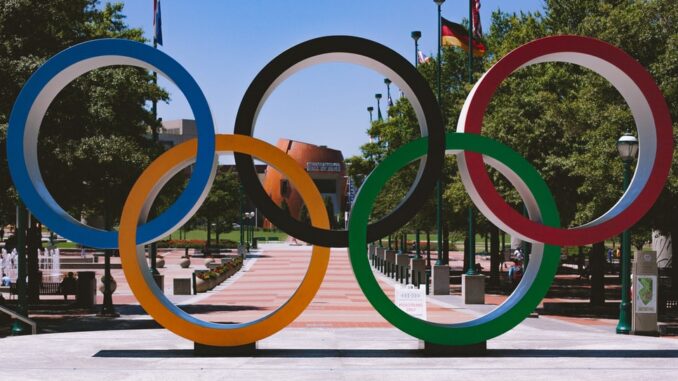
“I just wanted to pop in and check on you. So you might be a little confused right about now. You’ve just competed in the world’s biggest sporting event and yet, this is one of the lowest times you’ve ever felt,” former Olympian, and New Zealand field hockey player Brooke Neal posted to Instagram on Aug. 22.
The Olympics ended about a month and a half ago on Aug. 8, which means many fans have shifted their focus from the competition to other sporting events. But for many Olympic athletes, the effect of competing in the games is still weighing heavy on their day to day lives.
Neal’s post, which she captioned “A letter I wish I got after the Olympics,” examined the contradictory experience Olympians face once the games are over.
“You weren’t prepared for life to continue as if nothing happened,” the post reads, “But your insides are still processing all that you’ve been through, and no one can see that.”
The post was met with a series of other Olympians chiming in with their agreement.
“Reading this made my cry. It’s so very true… how is this not talked about more?” commented New Zealand rugby player and two-time Olympic medalist Sarah Hirini.
“Well said Brooke … so many points you have touched on definitely hit home keep it up,” agreed another former Olympian and New Zealand field hockey player, Kayla Whitelock.
The post highlighted a reality many Olympic athletes face during the post-Olympic-phase that many of us may not even consider: after coming down from the highest of highs competing at one of the most major sporting events in the world, athletes can come home to face one of the lowest experiences they’ve ever dealt with.
This is a time that reminds us that the focus on an athlete’s mental health is just as important as the focus on their physical health.
An article published in The Conversation focuses on the toll of post-Olympic life on an athlete’s mental well-being. Noting that for most-decorated Olympian of all time, Michael Phelps, the post-game phase was especially traumatic.
“‘Really, after every Olympics, I think I fell into a major state of depression,’” Phelps stated during a 2018 interview.
The Conversation article continued to highlight athletes’ experiences after the games that lead them to a distressing state.
“When you get home, it’s really lonely,” explained one Olympian, “It’s quite depressing, and it is a little bit overwhelming, starting from square one again.”
According to the article, for many athletes, the Olympics were their main plan and main focus for years, so returning home without a new plan could leave them at a loss.
“Like you’re a tree that hasn’t put its roots down and the smallest gust of wind could knock you over,” Neal’s post seems to describe this phenomenon.
The focus on an athlete’s mental health has been coming more into conversation as of late, especially after the most recent Olympic games in Tokyo. During which, the most decorated gymnast of all time, Simone Biles, pulled out of the individual all-around competition citing the need to focus on her mental well-being as the leading factor.
It’s important for decisions regarding mental health to be met with empathy and support, but certain sports commentators responded hatefully to Biles’ decision and saw it as a selfish act, “She wasn’t there for [her team],” commentator Clay Travis said, “and that represents a fundamental breach of the most important aspect of team sports.”
In contrast, many Olympians sounded out with their support and understanding of Biles’ situation.
“I hope this is an eye-opening experience … an opportunity for us to jump on board, and to even blow this mental health thing even more wide open,” Phelps responded following the gymnast’s decision.
With more and more of these experiences coming into the public eye, it’s important to shift away from the stigma that still exists surrounding mental health struggles and to remember one very simple but seemingly forgotten fact: Olympians are only human, too.
